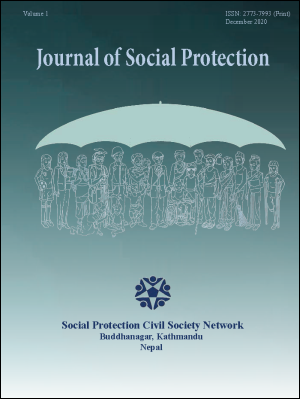Assessment of Child Sensitive Social Protection Programmes in Nepal
DOI:
https://doi.org/10.3126/jsp.v1i0.38211Keywords:
Child poverty and vulnerability, Child sensitive, Inclusiveness, Life cycle, Social Accountability, Social protectionAbstract
Studies have shown that social protection programme can be detrimental to children if it is not designed and implemented in a proper way. Even programmes focusing on children can be counter-effective and can leave a long-term adverse effect in the lives of children. This article aims to assess the children focused social protection programmes in Nepal from a child rights perspective with a specific consideration around the area of social assistance. This article adopts a Core Diagnostic Systems Assessment Instrument (CODI) tool and is primarily based on secondary data. Results show that the current social protection system, especially focused on children, in Nepal lacks several elements of child sensitivity such as ‘adequacy’, ‘respect rights and dignity’ in designing and implementation. Furthermore, though the Government of Nepal prioritise social assistance by channeling reasonable funding, the share of children focused programmes is relatively low. Any investment made on children currently, would result in their better future and the country at large. Thus, increasing social assistance targeting children will contribute to better child protection and eventually have significant development impacts. This will also be critical in ensuring the rights of children in general and vulnerable children in particular.
Downloads
Downloads
Published
How to Cite
Issue
Section
License
Copyright for articles is retained by the authors, with first publication rights granted to the journal.

